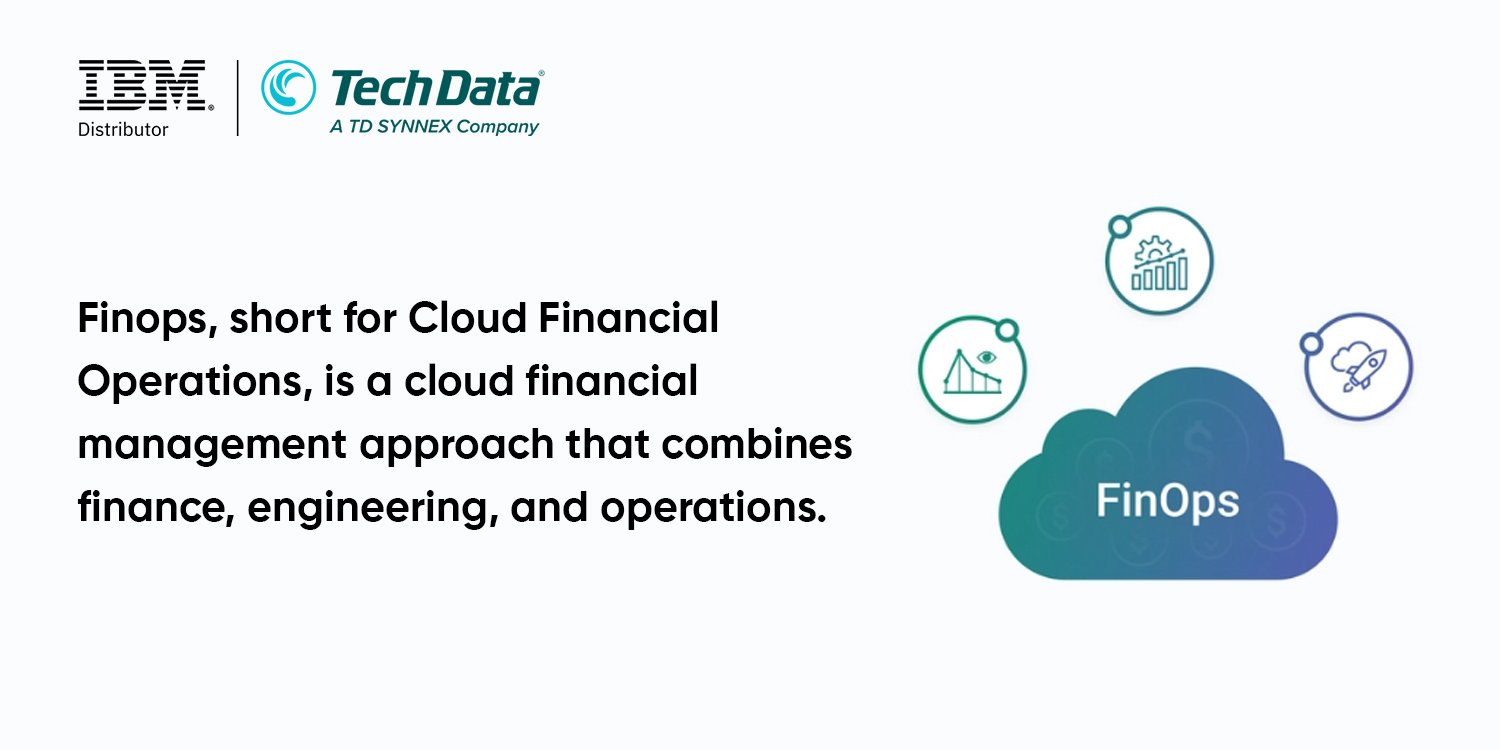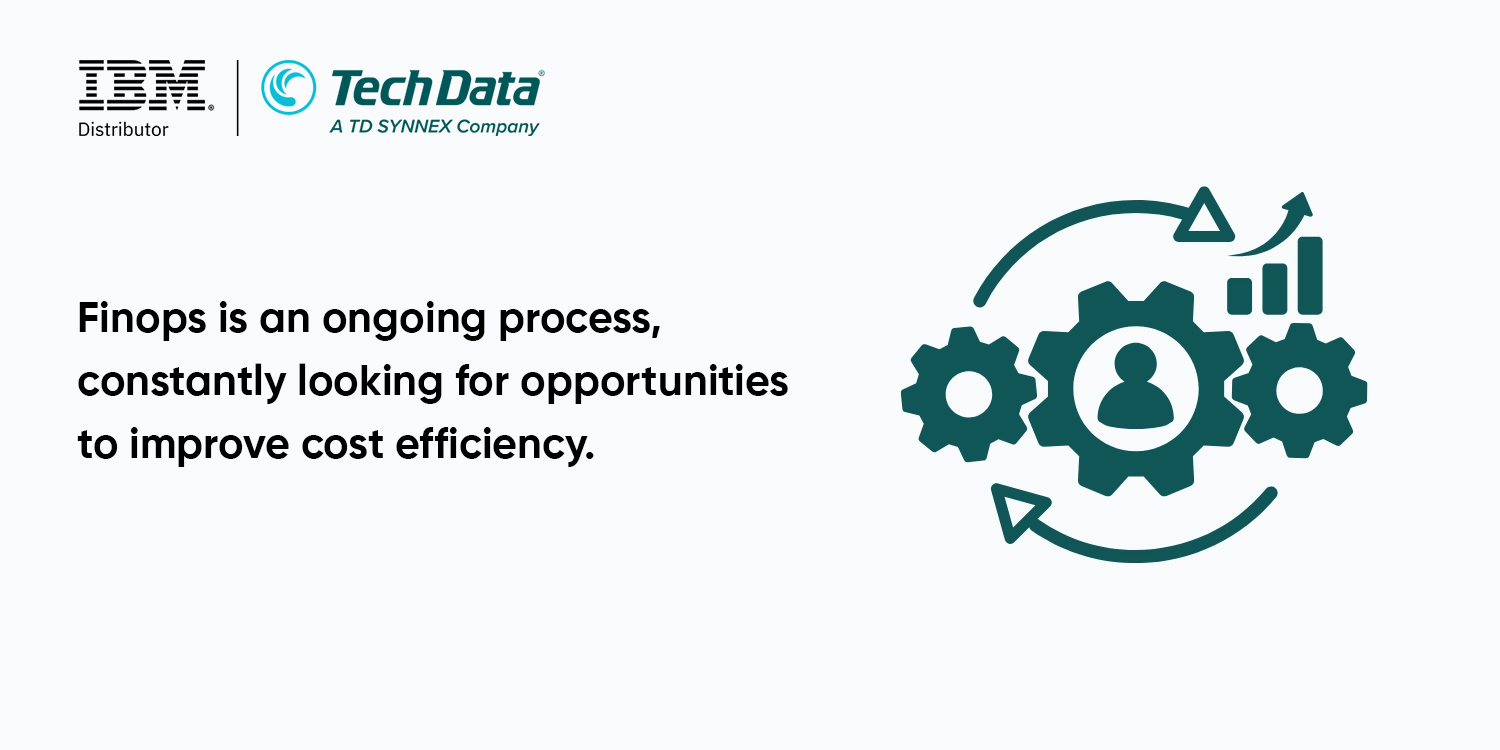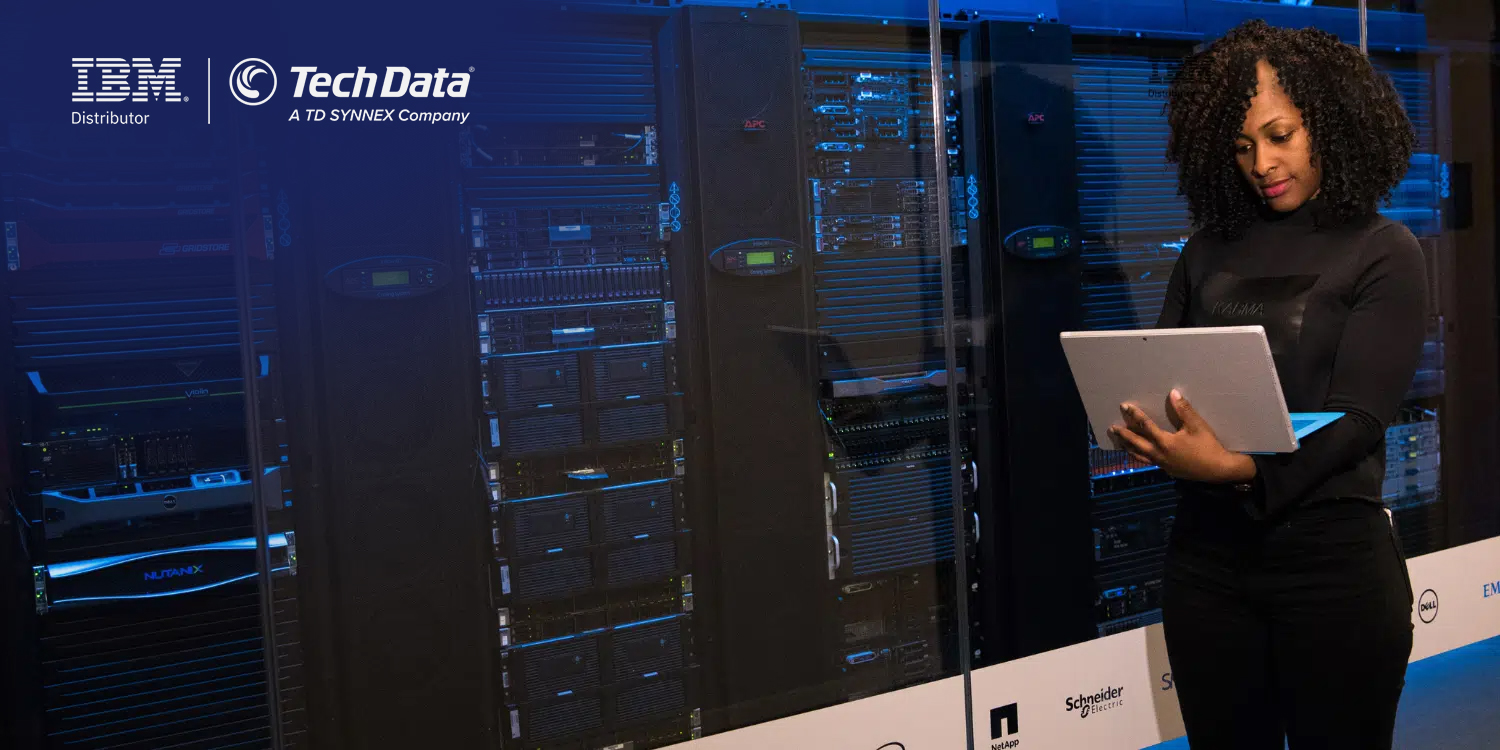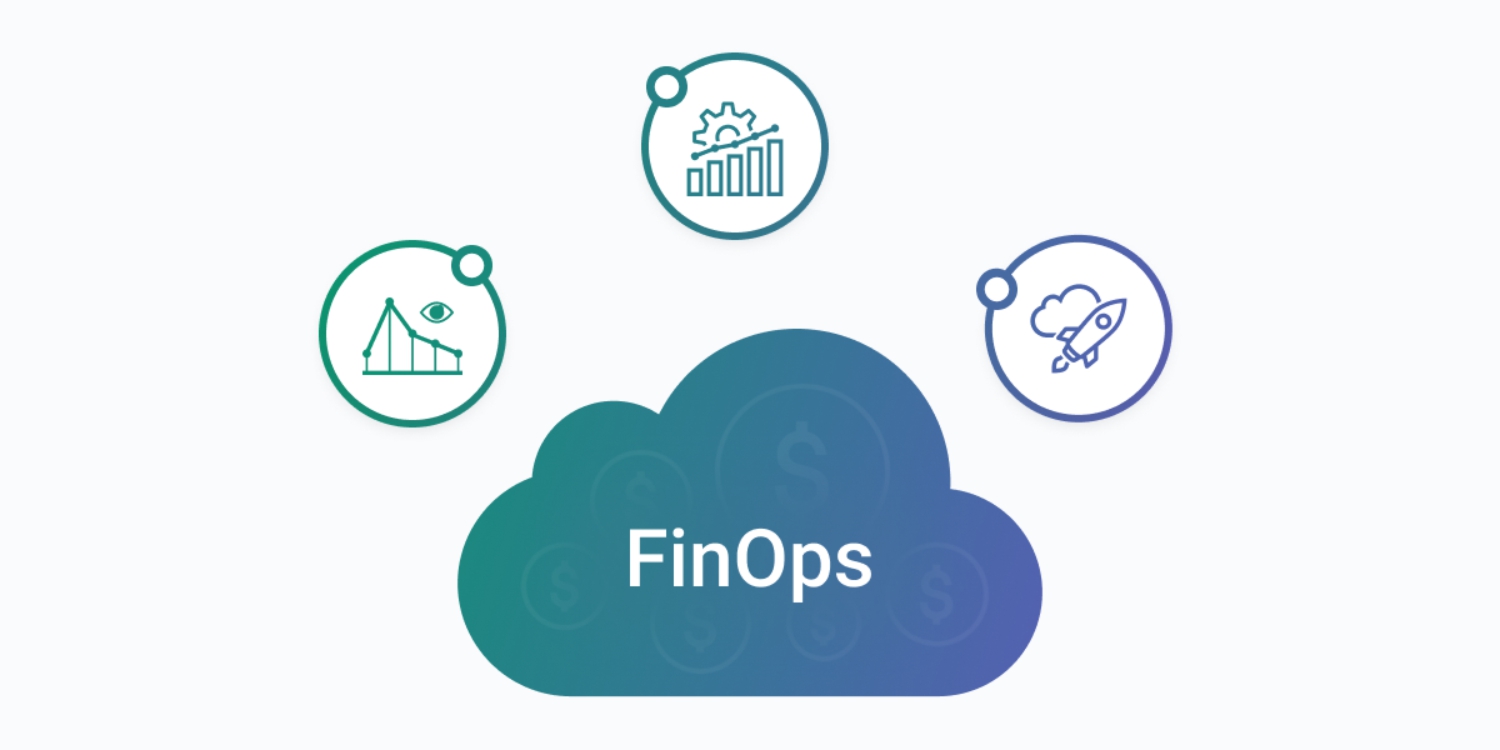In the context of strong digital transformation, the application of cloud computing has become an inevitable trend. However, along with the benefits of flexibility, scalability and operational efficiency, cloud costs have become a big challenge for many businesses. This shows the importance of effectively managing cloud costs. FinOps was born as an optimal solution to this problem. So what is FinOps? Why is it so important? And how can you apply FinOps to your business? Let’s find out the details in this article.
What is FinOps? Definition and Nature
FinOps, short for Cloud Financial Operations, is a cloud financial management approach that combines finance, engineering, and operations to help organizations better understand cloud costs, make informed decisions, and optimize spending. It’s not just about cutting costs—it’s about getting the most value out of cloud investments.
FinOps is not:
- Just cutting costs: FinOps focuses on optimizing value, not simply reducing costs.
- Just the responsibility of finance: FinOps requires close collaboration between finance, engineering, and operations.
- An “instant noodle” solution: FinOps is an ongoing journey that requires commitment and effort from the entire organization.

The Nature of FinOps
- Collaborative Culture: FinOps promotes collaboration between different departments within the organization to achieve common goals.
- Transparency: FinOps provides clear and detailed visibility into cloud costs, giving people a better understanding of how their money is being used.
- Accountability: FinOps helps teams take responsibility for their cloud costs and encourages them to make informed decisions.
- Continuous Optimization: FinOps is a continuous process, constantly looking for opportunities to improve cost efficiency.
For example, instead of just asking engineering to reduce costs, FinOps encourages finance to work with engineering to better understand how they are using the cloud and find ways to optimize spending without impacting performance.
Why is FinOps important?
In the digital age, the cloud has become the foundation for business innovation and growth. However, effectively managing cloud costs is a significant challenge. Without a clear FinOps strategy, businesses may face the following issues:
- Cost Overruns: Cloud projects can quickly go over budget if not tightly controlled.
- Wasted Resources: Cloud resources can be wasted if not used efficiently.
- Lack of Transparency: Businesses may not know exactly where their money is being spent in the cloud.
- Bad Decisions: Cloud decisions can be made based on incomplete or inaccurate information.
- Impact on Profits: Uncontrolled cloud costs can negatively impact a business’s bottom line.
FinOps helps solve these problems by
- Providing a Comprehensive View of Cloud Costs: FinOps helps businesses better understand how their money is being spent in the cloud, allowing them to make better decisions.
- Increasing Accountability: FinOps helps teams take responsibility for their cloud costs and encourages them to find ways to optimize spending.
- Fostering Collaboration: FinOps fosters collaboration between finance, engineering, and operations to achieve common goals.
- Process Automation: FinOps uses automated tools and processes to help businesses manage cloud costs more efficiently.
- Continuous Optimization: FinOps is a continuous process, constantly looking for opportunities to improve cost efficiency.

Why is FinOps Becoming an Inevitable Trend?
Cost optimization and operational efficiency improvement are key factors for businesses to maintain their competitive advantage. Cloud, with its outstanding advantages of flexibility, scalability, and low initial costs, has become the first choice of many businesses. However, cloud cost management is a huge challenge, requiring a new and comprehensive approach. That is why FinOps is becoming increasingly important and has become an inevitable trend in cloud cost management.
The Complexity of Cloud Costs
Cloud costs are not as simple as traditional physical asset costs. They include many different elements—compute, storage, networking, managed services, security, and support. Each service offers various configuration options with different pricing. Accurately tracking and analyzing these becomes extremely complex, especially in multi-cloud or hybrid cloud environments.
The rapid change of cloud environment
The cloud environment is constantly evolving, with new services being launched, new features added, and new pricing models introduced. Businesses must continually update their knowledge and skills to fully leverage cost-saving opportunities.
Lack of skills and experience
Managing cloud costs effectively requires deep financial, technical, and operational expertise. Many businesses lack the talent or experience needed to manage cloud costs optimally.
The need for a culture of cooperation
Managing cloud costs is not the sole responsibility of finance or engineering. It requires cross-functional collaboration between finance, engineering, operations, and leadership to align business goals with cloud investment strategies.
The importance of data and analytics
To effectively manage cloud costs, businesses need to collect and analyze detailed and accurate cost data. This data helps them better understand where and how money is being spent, empowering smarter, faster, and more strategic decisions.
In a world of ever-increasing cloud costs and fierce competition, FinOps is no longer an option but a necessity for businesses aiming to succeed in the digital age.

The Fundamentals of FinOps
FinOps is built on a few fundamental principles that guide how organizations should approach cloud cost management. These principles help ensure that FinOps is implemented effectively and delivers real value to the business.
- Collaboration: Engineering, finance, and business teams must work together to effectively manage cloud costs.
- Accountability: Each team is responsible for its own cloud costs.
- Transparency: Cloud costs should be clearly visible and understandable to everyone.
- Data-Driven: Cloud cost decisions must be made based on accurate and complete data.
- Continuous Optimization: Cloud cost optimization must be done continuously and without interruption.
FinOps Implementation Process
FinOps implementation is a step-by-step process that requires commitment and effort from the entire organization. Here is a 6-step FinOps implementation process:
- Define your goals
Clearly define the goals you want to achieve through your FinOps implementation. For example, reducing cloud costs, increasing resource efficiency, improving cost forecasting. - Data Collection
Collect cloud cost data from various sources, such as cloud provider invoices, cost monitoring tools, and accounting systems. - Data Analytics
Analyze cost data to better understand how your money is being spent in the cloud. Identify areas of waste and cost-saving opportunities. - Take Action
Take actions to optimize cloud costs, such as turning off unused resources, optimizing virtual machine sizes, and using cloud provider discount options. - Track Results
Track the results of the actions you take to make sure they are working. - Iterate
Repeat this process continuously to continually improve cloud cost efficiency.
Apptio Cloudability – IBM's Leading FinOps Solution
Tech Data is the official distributor of IBM in India, providing server solutions, AI server systems, and IBM’s highly secure server systems. Tech Data has many years of experience in the field of servers, security, and data storage solutions. The solutions provided by IBM include: IBM Storage FlashSystem, IBM Guardium, IBM Instana, IBM watsonx.ai, and IBM Apptio Cloudability.
Apptio Cloudability is a leading FinOps solution that helps organizations manage and optimize cloud costs effectively. It provides a comprehensive view of cloud costs, helping you better understand how your money is being used and make better decisions.
Key Advantages of Apptio Cloudability
Comprehensive cost monitoring:
- Full cost tracking for AWS, Azure, GCP, and more.
- Detailed cost analysis by service, group & project to optimize resource utilization.
Cost Optimization with AI:
- Reduce cloud unit costs by up to 30% by intelligently analyzing and adjusting resources.
- Automatically save costs through right-sizing and optimizing resource efficiency.
Financial Management & Budget Control:
- Showback reports help align budgets with business goals.
- Tight financial controls across multi-cloud environments.
Accurate spending forecast:
- Use advanced tools for accurate budgeting & financial forecasting.
- Enhance forecasting with in-depth analysis of cloud resource usage trends.
Automate & Improve Performance:
- Automatically implement cost savings across multiple cloud platforms.
- Increase operational efficiency and reduce manual workload.
Fast Return on Investment:
- Save up to 25% in 6 months.
- Maintain automatic and continuous cost savings, ensuring long-term financial sustainability.
Enterprise-scale management:
- Trusted by Fortune 500 companies to monitor complex multi-cloud environments.
- Detailed cloud cost allocation & anomaly detection for better decision making.

Benefits of Using Apptio Cloudability
- Cost Savings: Helps you reduce cloud costs by identifying areas of waste and optimizing resource usage.
- Increase efficiency: Helps you use cloud resources more efficiently by automating processes and providing cost insights.
- Improved Forecasting: Helps you forecast cloud costs more accurately using advanced analytics and forecasting tools.
- Make better decisions: Helps you make better decisions about cloud costs by providing a comprehensive view of cost and performance.
FinOps is an important approach that helps organizations manage cloud costs effectively. By adopting FinOps principles, implementing FinOps processes, and using FinOps tools, you can reduce cloud costs, increase resource efficiency, improve cost forecasting, and make better decisions. Start your FinOps journey today and discover the benefits it can bring to your business!
Are you ready to start your FinOps journey? Contact Tech Data India for advice and support in implementing Apptio Cloudability – IBM’s leading FinOps solution, helping you manage and optimize cloud costs effectively.








